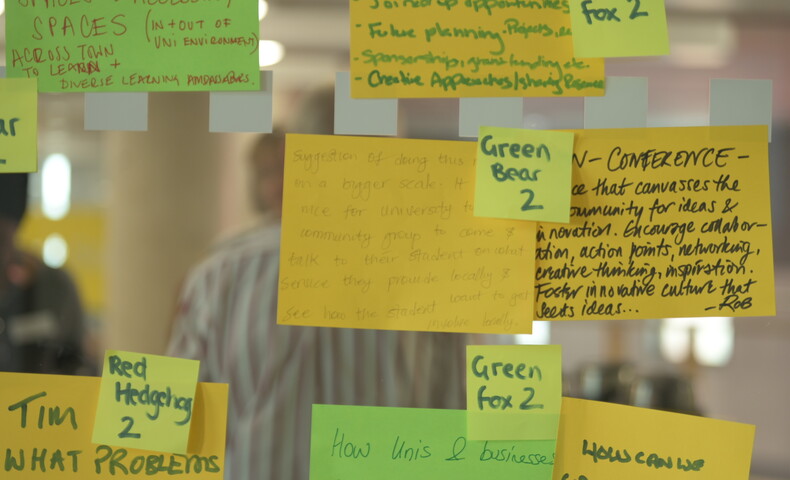Meaningful, organic conversations, open to all.
Our Open Space events
To find out what our regional community wants from UEA, we have toured East Anglia collecting opinions and ideas using a participatory method called 'Open Space'. The findings from these events have been distilled to form UEA's Civic Charter, a statement of values, principles and promise, to guide our work going forward.
Open Space is a democratic, participatory method of holding meetings and conferences, that allows attendees to set the agenda and offers each participant equal opportunity to make their voice heard. The format is simple, yet it takes away hierarchical structures found in traditional meetings which empowers participants to speak confidently and honestly, inspiring creative and collaborative discussions. Open Space is designed to empower all participants to share their thoughts regardless of job description or demographic, giving people ownership of what’s being discussed which makes the developments that come out of the meeting much more impactful to the organisation and its stakeholders.
We also used the Polis online tool to gather open ended feedback from large groups of people. It is well suited to gathering organic, authentic feedback while retaining minority opinions.

Previous events
You can read about our previous events below.
Welcome to our open space
All our events are held using the open space meeting method.
This is a form of meeting where the agenda is set collaboratively and the outcomes are all recorded organically and instantly.
Our animation shows you how it all works.

)